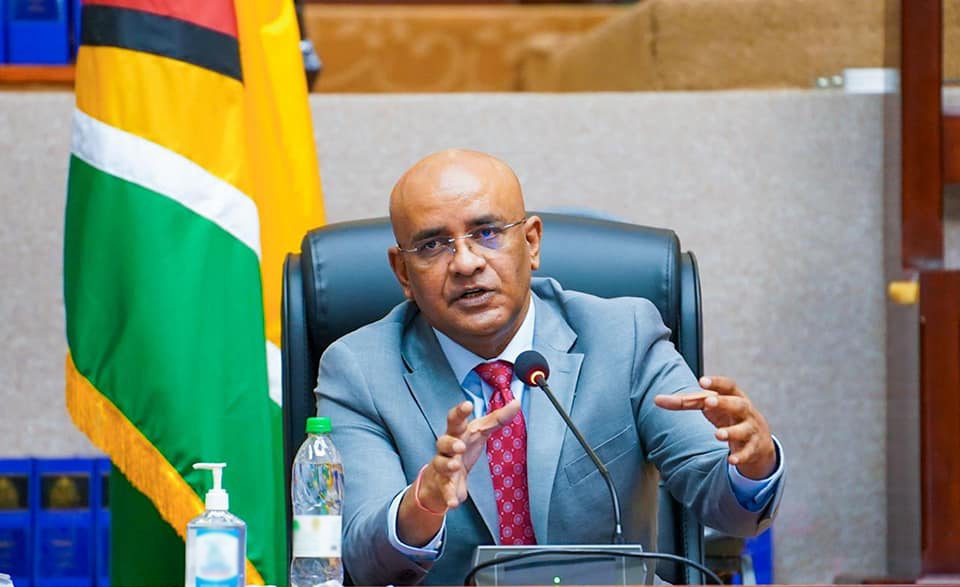Guyana’s Vice President Bharrat Jagdeo had cause to reiterate that it is Venezuela that has assumed an aggressive posture in its efforts to grab two-thirds of his country’s territory.
That retort was in response to those who have called on both Guyana and Venezuela to ensure that the region remains “a zone of peace” and to Venezuela’s Vice President who painted Guyana as an aggressor during recent hearings at the International Court of Justice (ICJ).
“I see calls about peace in the region. We have never threatened the peace. Venezuela has been an aggressive country threatening peace,” Jagdeo underscored. “We have never threatened any country. Venezuela has threatened our border. They have threatened to annex our territory. They have threatened to leave the peaceful means of settling this border issue, which is the ICJ, which is, in most civilized countries and in a civilized world, what people do.”
“This Essequibo is ours, every square inch of it” – President Ali | OilNOW
Jagdeo pointed out that Venezuela continues to “paint themselves as victims”.
He said they falsely accused Guyana of allowing the U.S. to set up an American military base in the country to “invade them”. This accusation, he explained, was made by Venezuela’s Defense Minister at the recent South American Defense Conference held in Brazil.
“It is nonsense. They have always done that, to create this victimhood,” Jagdeo added.
Jagdeo, like analysts that have weighed in on the controversy, believes the actions by Venezuela are political, as its President, Nicolas Maduro and his administration attempts to cling to power. Elections are next year, and Maduro already has a strong Opposition candidate María Corina Machado proving to be a worthy opponent.
Guyana lawmakers unanimously pass motion rejecting Venezuela referendum | OilNOW
The Guyanese VP slammed his Venezuelan counterpart for what he described as her “vile rhetoric.”
“This gives them a beautiful platform to campaign ahead of elections…hoping to maybe mobilize support around a seemingly national issue,” Jagdeo continued.
He called out the Venezuelan Vice President of presenting false narratives during her ICJ presentation regarding Guyana’s alleged aggression and the treatment of Venezuelan migrants in the country.
“It is based on a series of lies and I think it serves their political interests,” he said.
The latest wave of aggression came from Venezuela after Guyana announced the results of its bid round. Communiques with threats to participating oil companies, threats to those who came out in support of Guyana, and threats to Guyana from Maduro and Venezuela’s Defence Minister, Vladímir Padrino López all came over the past two months. Guyana on the other hand, expressed its trust in the World Court to offer a final resolution to the controversy and called on Venezuela to honour its obligations under the United Nations Charter to pursue only “peaceful means” to settle any controversy it may have with Guyana. The ICJ will issue a ruling soon on Guyana’s request for provisional measures to block Venezuela’s vote on December 3. Guyana presented its oral argument to the World Court on November 14. Venezuela presented its own argument the following day, signaling that it intends to proceed with the referendum regardless of the ICJ’s decision.
The hearings are part of a broader case, concerning the validity of the 1899 Arbitral Award, which settled the border between the two countries 124 years ago. Venezuela had accepted the award but resurrected its claim for the region when Guyana gained independence from the United Kingdom in 1966. This resulted in the two sides signing on to the 1966 Geneva Agreement to resolve the controversy. For decades, the two sides have been unable to do so. Then, in 2018, invoking his responsibility under the Agreement, the United Nations Secretary General referred the matter to the ICJ.



